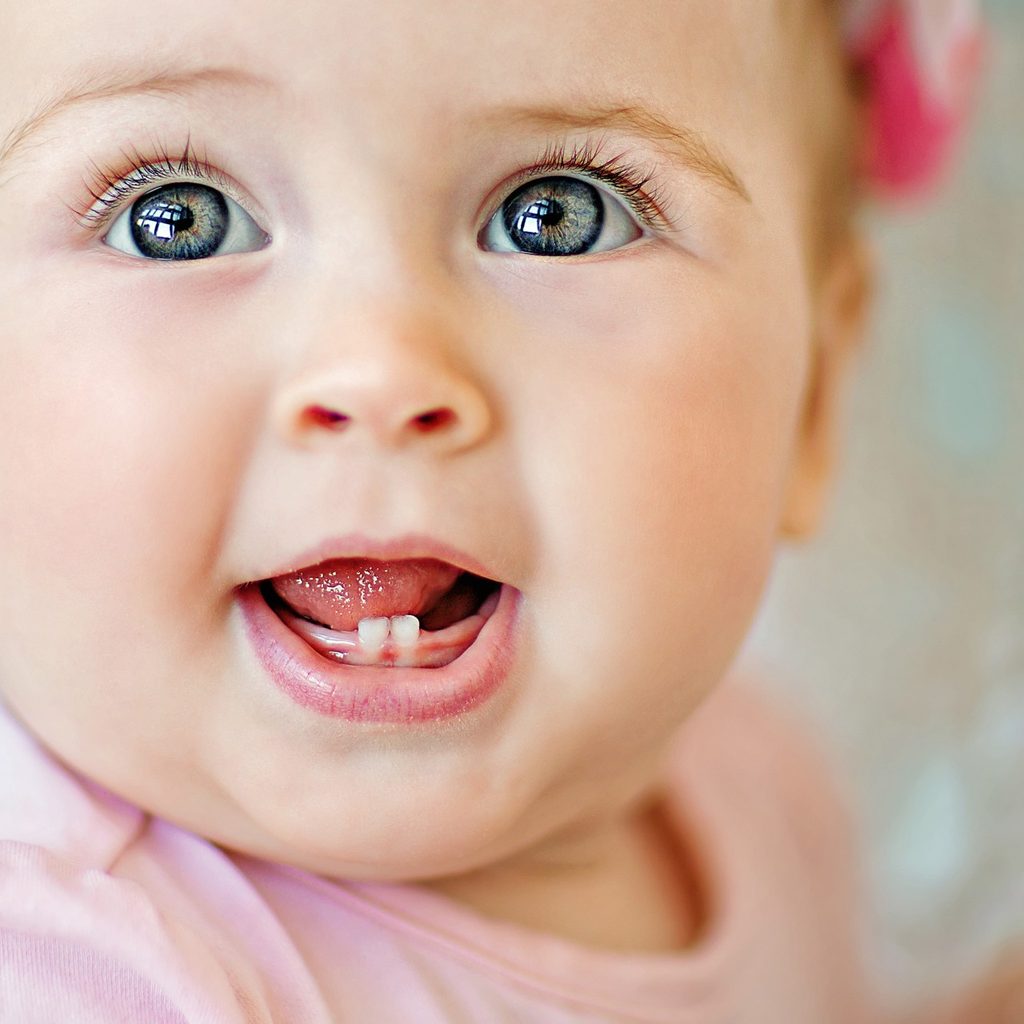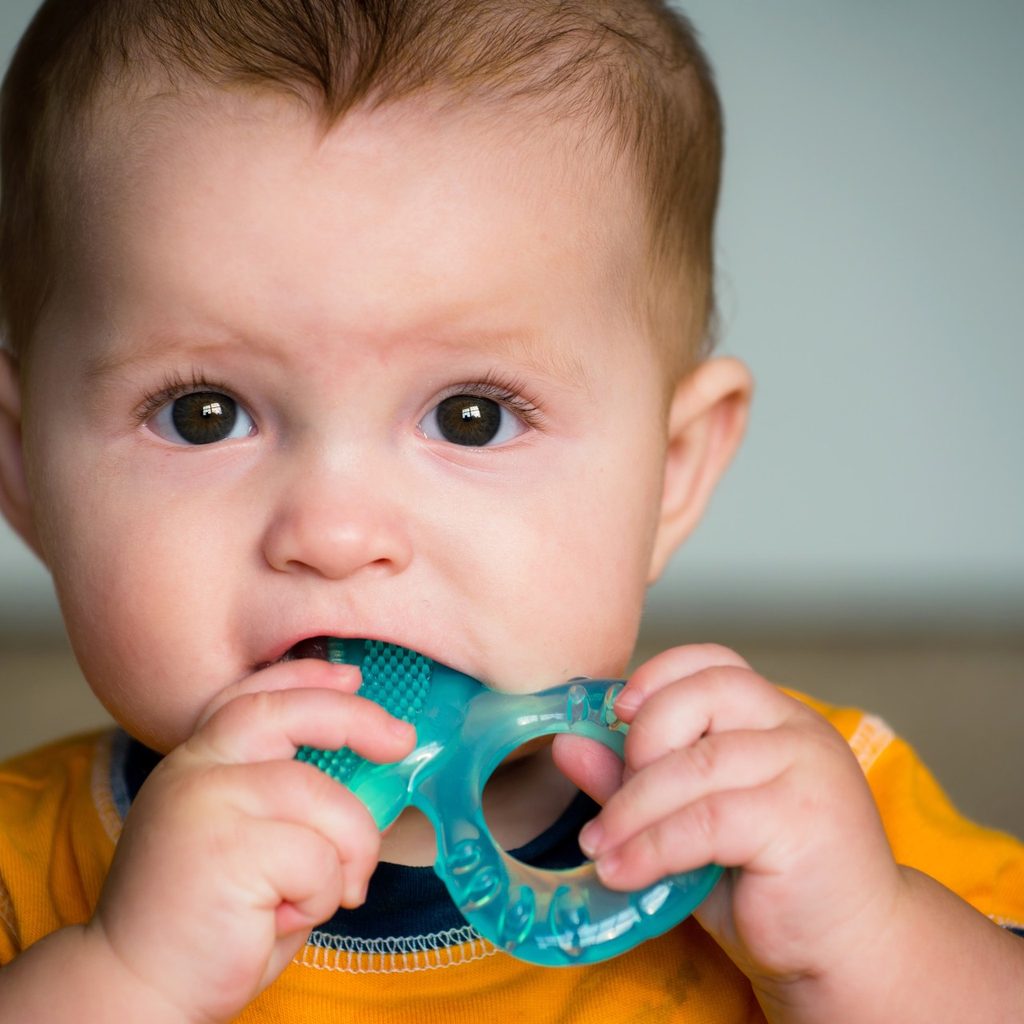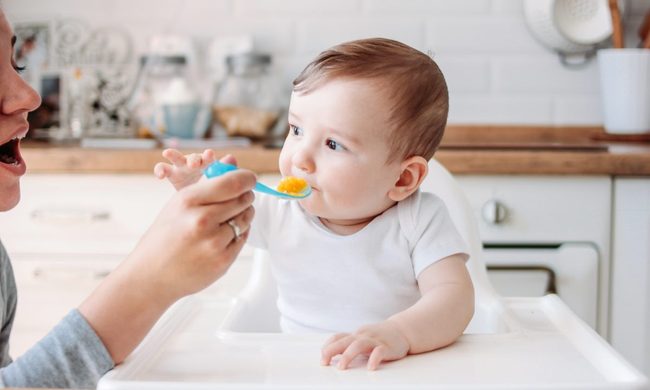For parents and loved ones, hearing a fussing child toss around their crib, in audible discomfort, can be one of the most difficult things adults can experience with infants. Seeing and hearing your child go through a painful situation can be very trying on parents, causing exacerbated stress levels. Teething, though uncomfortable as it may be, is a crucial step in a baby’s development. This process paves the way for them to start consuming solid foods and obtaining vitamins and nutrients from other sources besides breastmilk or formula. It also heralds a new chapter and phase in your growing baby’s life, bringing new and exciting experiences besides cutting teeth. How to soothe a teething baby at night is a common question for those struggling with baby teething and sleep issues. How does one fix it?
While there are many methods, tips, products, and services available for babies who are teething, let’s focus primarily on the ways parents can help soothe their teething babies at night. Together with expert advice, these tidbits of advice and practical methods can help parents become more in-tune with their needs and roles during the transition of teething, without added headaches and frustrations.

Is baby really teething?
While this may seem like an easy decision question to ask and answer, not every parent is as experienced in the exact timeframes of milestones such as teething. This is especially true for new parents, who are so often thrust into the wide world of parenting for the very first time with little training on the subject. It’s vital to determine that teeth are in fact being cut, as the symptoms of teething can mimic other issues. Babies that pull their ears are not necessarily teething, and neither are those who place their fists into their mouths.
These symptoms, when in an isolated circumstance, cannot definitively point solely to teething. If you aren’t sure about whether your baby is in fact teething or suspect another problem, make a trip to your child’s pediatrician. A quick check-up can allow your child’s doctor to confirm or deny teething and identify other problems that could be causing discomfort, such as an earache, a cold, or other respiratory illnesses. A few classic teething symptoms that could be occurring at the same time are:
- Drooling
- Biting or placing their fists in their mouths
- Low-grade fever
- Ear pulling
- Increased fussiness or crying
- Decreased appetite
- Lack of sleep or disrupted patterns

Ways to soothe a teething baby
You’ve spoken with your child’s doctor, and you’ve found they are experiencing the process of cutting teeth. Now what? Don’t be afraid, no one expects parents to simply deal with their cranky infant. There are several ways to soothe and treat your child’s pain and discomfort from teething, many of them involving nothing more than a product or method right from the comfort of your home.
- Offer a chilled teething ring or cloth – Your baby’s gums are red and sore, and a cool cloth or refrigerated teething ring can be just the product to provide your infant with a cooling sensation to free them of the pain of the underlying tooth. We really love these soft and chewy, silicone teething wands from Tinabless. You can also simply wet half of a clean washcloth and place it into the freezer until chilled. By only wetting half of the cloth, your baby can safely hold onto the dry end and place the frozen half into their mouths and soothe their sore gums.
- Breastfeed before bed – If you find your baby fussing nearly every night before bed due to teething, consider nursing them in a calm and darker environment such as a dimmed bedroom or nursery. By dimming the lights and quietly nursing your little one before bed, you’re setting the tone for a calm and relaxing sleep. Additionally, studies have shown that breast milk can reduce the pain of teething for babies.
- Provide gum massages – If your little one will allow you to do this, gum massages are an excellent way to encourage teeth to push through more quickly, while also giving direct relief to the painful area. Moms and dads often use gum massages while their babies are in their beds, allowing them to sneak away quietly should their little one drift off mid-massage.
A few other options are:
- Oral pain medication under the direction of your child’s pediatrician.
- Sips of lukewarm chamomile tea.
- OTC or homeopathic teething gels placed directly on the gums
Soothing your discomforted child while they are experiencing such a painful first experience as teething can sometimes feel overwhelming. The transition can come up quickly and can often be mistaken for other issues or ailments, so it’s crucial to involve your child’s doctor with plans of care. It’s perfectly okay to look to the experts if you aren’t a veteran parent or experienced around teething. Cool teething products, an oral teething gel, or a gentle gum massage before bed could be just the ticket you need to ride the sleep train each night, even with a teething tot right down the hall.




